Overlooked during the prewar era and for the first decade of the postwar, it inspired four O gauge diesels and an operating boxcar in the space of four years in the second half of the 1950s. Let’s focus on the No. 2240 F3s.
Introducing the Wabash
The Wabash Ry. was one of several lines crossing the heart of the Midwest. At its peak, it boasted main lines stretching from Buffalo, N.Y., in the East and as far west as Kansas City, Mo. Tracks reached Detroit and Chicago and dipped down to St. Louis to create a compact and busy network.
According to George Drury, author of The Historical Guide to North American Railroads, the history of the Wabash Ry. originated in the 25 years before the eruption of the Civil War in 1861. Mergers enabled the railroad to grow from Illinois to cover many neighboring states.
Starting in the 1930s, the Pennsylvania RR sought to gain control of the Wabash to protect its routes and take advantage of the markets and shipping lines the latter had entered. By the early 1960s, the Pennsy virtually ran the Wabash, a situation that would prove untenable as the Penn Central was conceived. The Norfolk & Western ended up owning the Wabash lines during the 1970s.
While the Wabash operated many freight trains, it gained renown for passenger trains, in particular the beauties scheduled between Chicago and St. Louis during the streamliner era. Stainless-steel coaches and dome cars looked elegant riding behind diesels dressed in a deep blue, with white and gray details.
Lionel jumps in
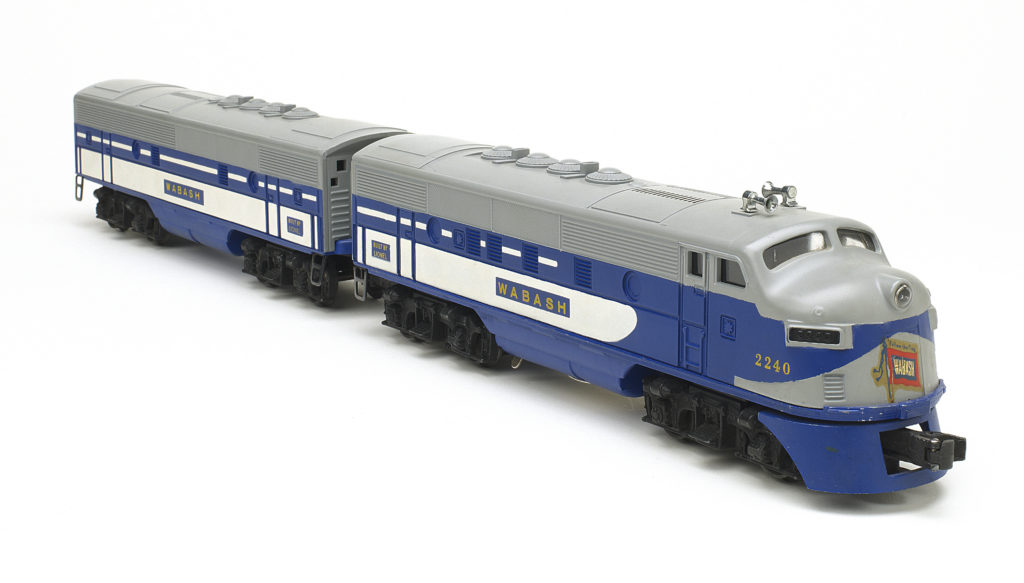
In 1955, executives at Lionel seized on the Wabash as inspiration for an A-B combination in the classic series of F3 diesels. The No. 2367 graced the O gauge line as a set component and a separate-sale item. The lead locomotive came equipped with a three-position reversing unit and twin vertically mounted motors. Magne-Traction and a horn were there, too.
In 1956, Lionel shifted the Wabash A-B duo to its O-27 roster and renumbered the pair as 2240. Available separately, the combination also served as the motive power for outfit No. 1563W, a five-car freight train. That set contained the Nos. 3562-50 yellow operating barrel car, 3620 searchlight car, 6414 Evan auto loader, 6467 miscellaneous car (the only new item), and 6357 Southern Pacific-type caboose.
The basic mechanical features of the 2240 diesel remained unchanged from those installed on the 2367 – with one notable exception. Like other F3s placed in the O-27 line, the powered A unit had only a single vertical motor.
In terms of the decoration, the 2240 scarcely differed from its predecessor. Both typically came with blue-painted body shells that had a gray-painted roof and upper section, white screen-printed lower section, and broken center stripe. Yellow heat-stamped lettering and numbers and a cool Wabash emblem decaled on the nose caught your eye, as did the one-piece ornamental horns on the roof.
Keep in mind that the 2367 had raised molded ladders on the cab door while the 2240 had simple molded ladders. Otherwise, the two diesels were identical.
Why Lionel cataloged the Wabash combinations for only one year remains a mystery. And it didn’t include the No. 3424 operating brakeman car painted and lettered for the same railroad in the set led by 2240s. Who knows why? Just another question it would be great to ask Lionel’s postwar leaders.
Lionel cataloged the No. 2240 Wabash F3 A-B combination in 1956.
Buyer’s checklist:
- Cracked or warped body shells?
- Scratched or damaged paint?
- Missing or peeling nose decals?
- Non-operating couplers?
- Functioning headlight and horn?






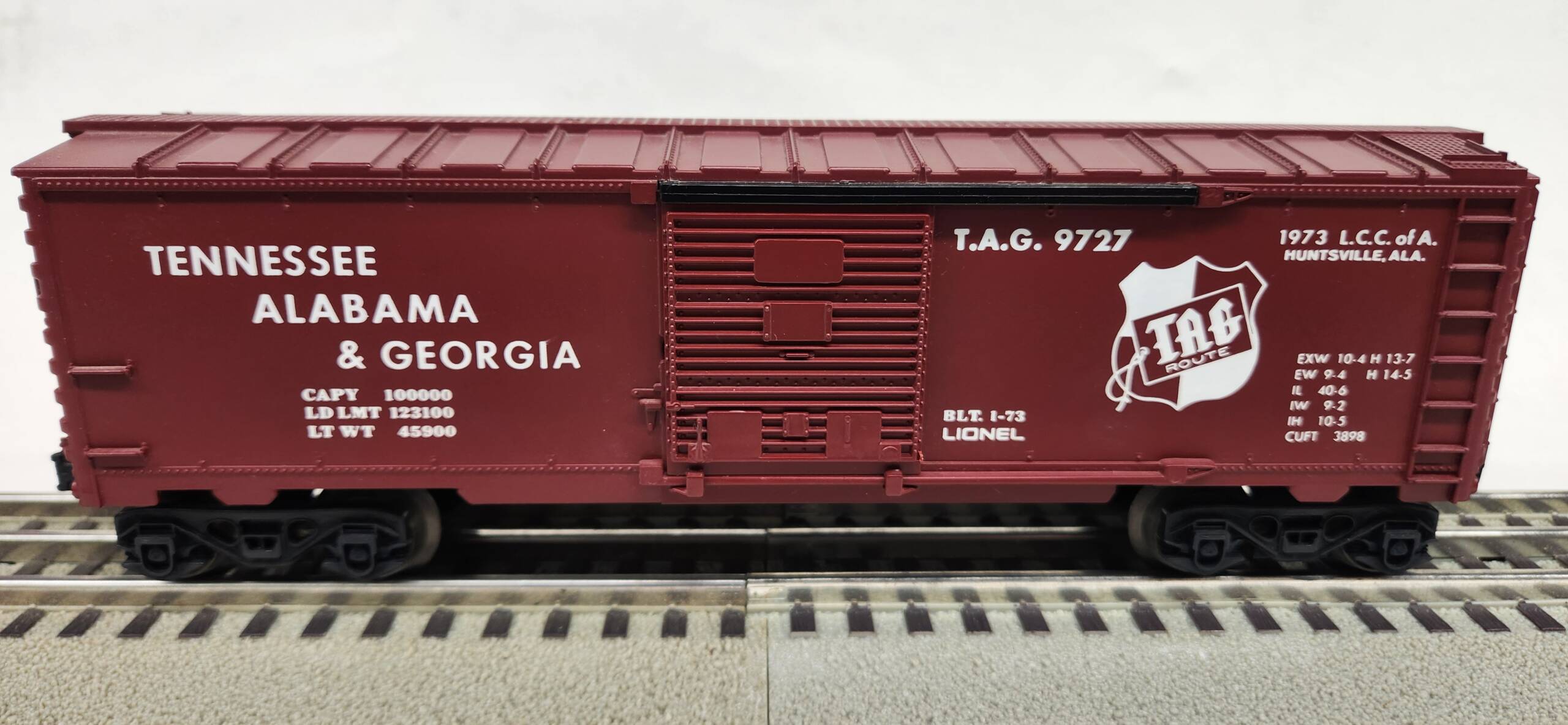
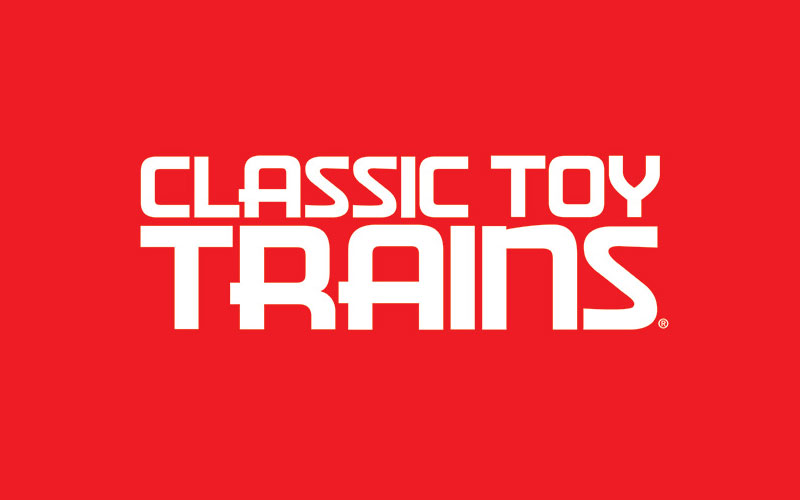
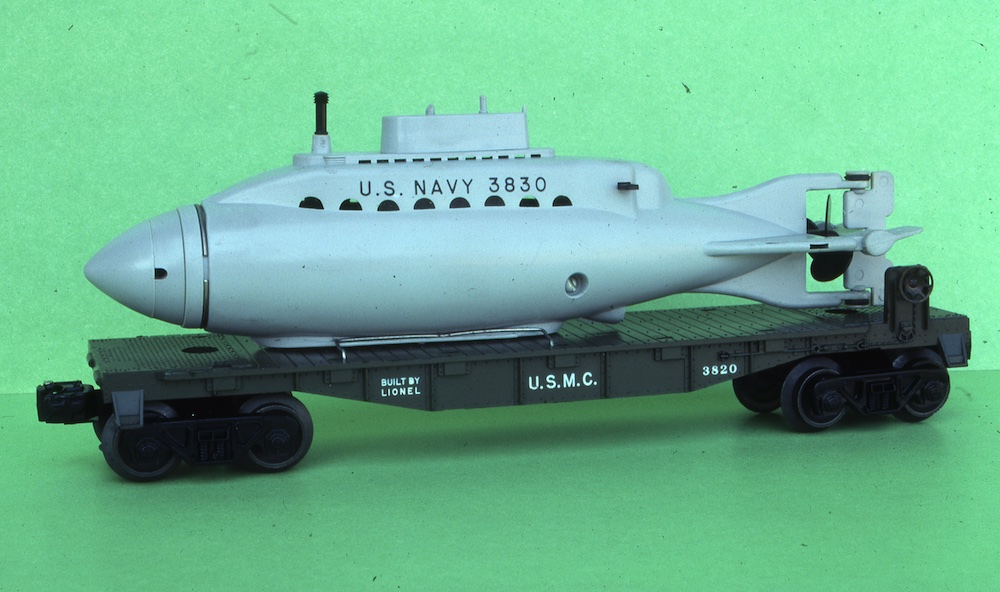
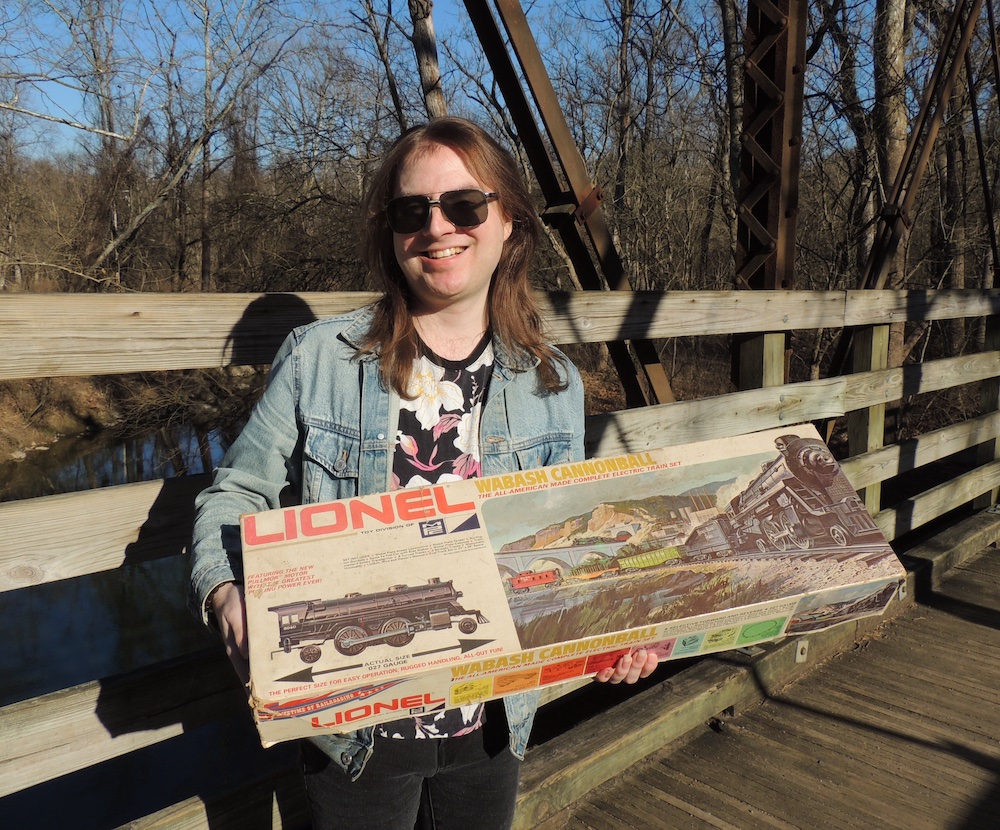
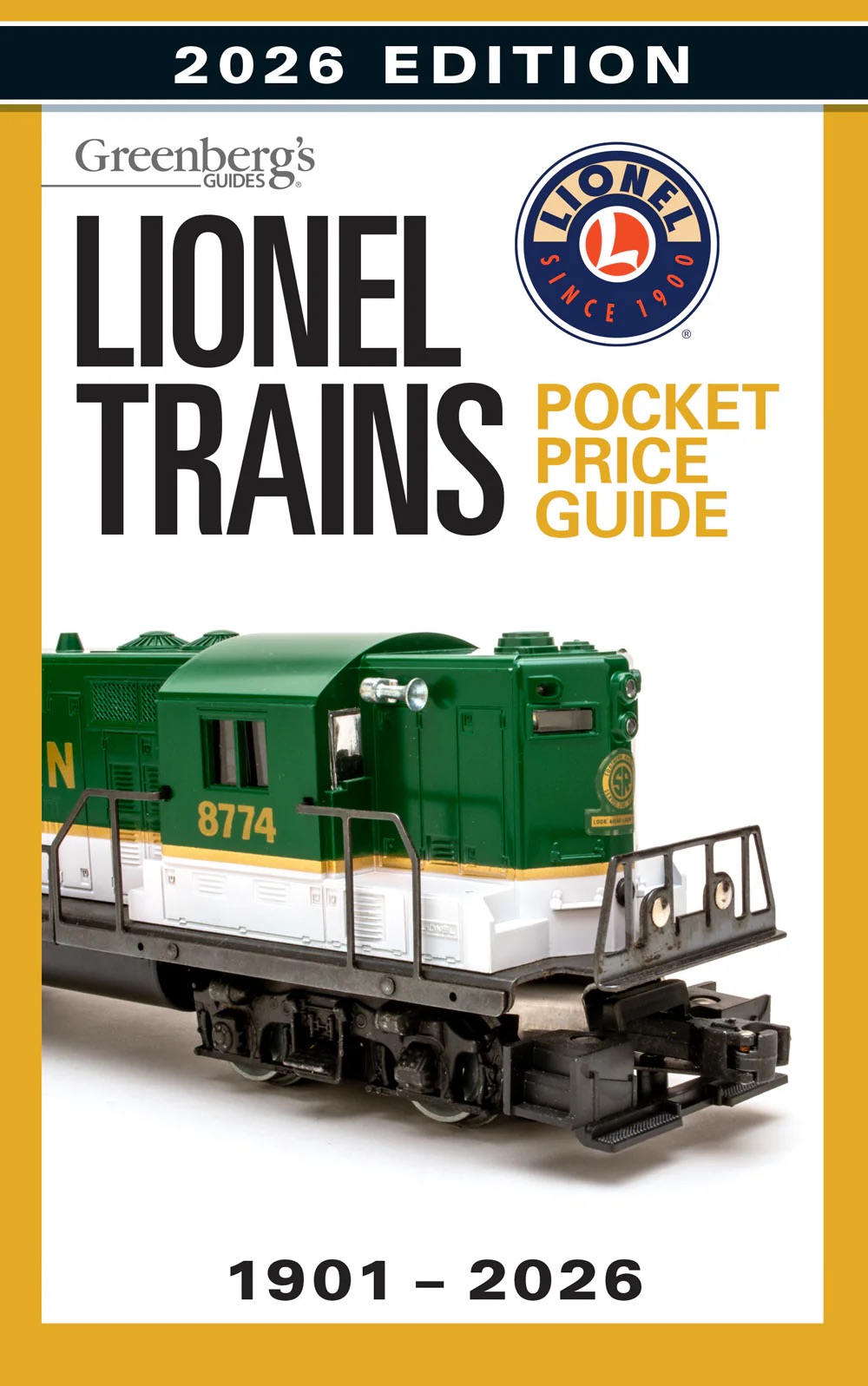
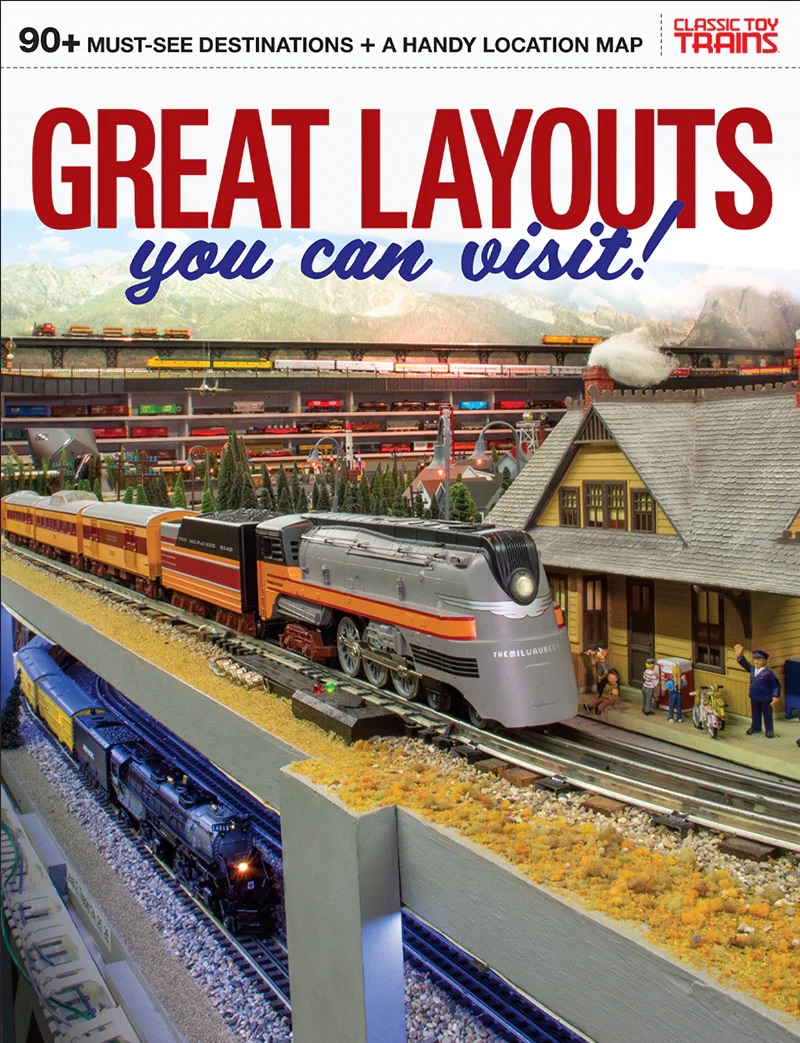
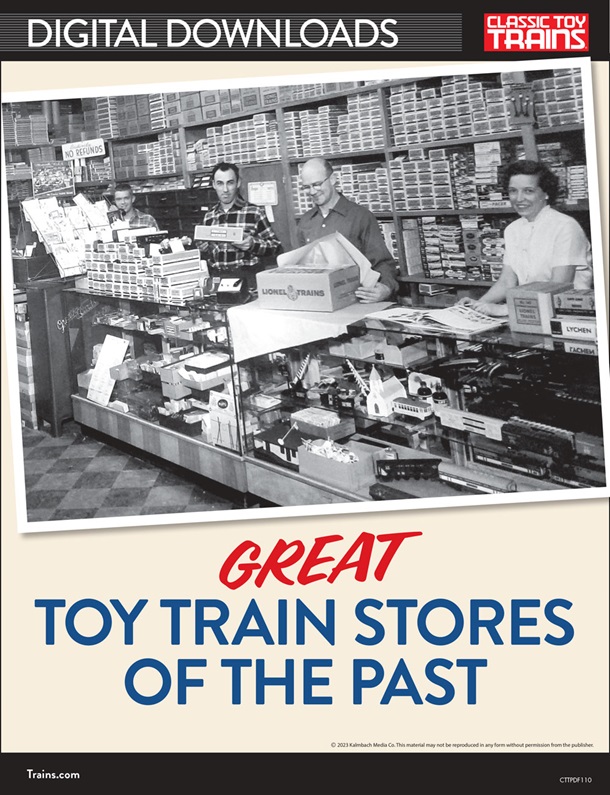
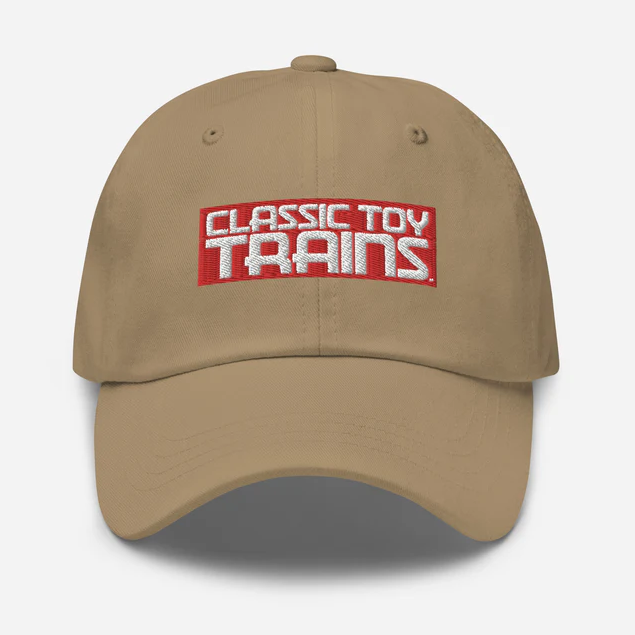
I searched for all articulates on Lionel barrel loader in all classic toy train mags. I got one article from the December issue and five arrivals on other things. Lousy search feature! Bill Harris